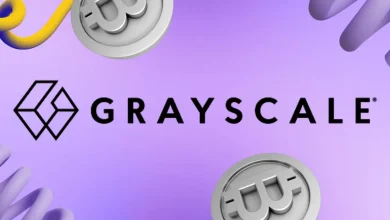
South Korea is cracking down on crypto tax evasion, targeting individuals hiding wealth in digital assets.
Authorities are using data from crypto exchanges and legal frameworks to seize and liquidate cryptocurrency from tax delinquents.
South Korea is prioritizing tax collection and fairness, even as crypto tax reforms face potential delays.
From giving warnings to crypto exchanges to tracking down illegal activities, South Korea’s strict stance on crypto violators is an example for other countries. To create a fair and transparent environment, South Korean authorities are tightening their grip on tax evaders who hide wealth in cryptocurrency.
As per the local reports, the Gwanak district in Seoul has announced a new investigation targeting 325 individuals who owe a combined $714,000 in unpaid taxes. To track down hidden funds, officials will request data from the country’s five major crypto exchanges.
Seoul’s New Crypto Rules
In recent years, South Korea has strengthened its ability to seize and sell cryptocurrency linked to unpaid taxes. In 2018, the Supreme Court ruled that Bitcoin and other digital assets are property, making them eligible for confiscation. New laws in 2022 gave tax agencies the power to directly seize and sell these assets to recover unpaid taxes.
Gwanak’s investigation follows similar actions across the country, including in smaller cities like Gwacheon. If individuals fail to pay their taxes, authorities can freeze their crypto wallets and sell their holdings to recover the owed amounts.
With crypto tax policies delayed until 2027, this method is currently the only option to retrieve unpaid taxes.
What Happens to Seized Crypto?
Once the government seizes cryptocurrency, taxpayers have a chance to settle their debts. If they don’t respond or refuse to pay, the government will sell the assets on the open market. The funds from the sale are then used to support public finances and help local governments cover expenses.
Officials hope these measures will discourage tax evasion and prevent digital assets from being used to hide wealth. By enforcing these rules, South Korea aims to send a strong message: everyone must comply with the law.
Debate Over Crypto Tax Delays
At the same time, South Korea’s People’s Power Party has proposed delaying crypto tax reforms, raising concerns among investors. Some see this as a way to attract investment, while others fear it could encourage criminal activity. South Korea’s crypto market is thriving, with a 27% growth in 2024, reaching 55.3 trillion won by June. Daily trading volumes have also surged to 20 trillion won.
In contrast, the stock market has struggled, with margin deposits dropping 10 trillion won. The cancellation of a higher tax threshold has also frustrated young investors, adding to concerns about fairness in taxation.
Never Miss a Beat in the Crypto World!
Stay ahead with breaking news, expert analysis, and real-time updates on the latest trends in Bitcoin, altcoins, DeFi, NFTs, and more.
South Korea’s approach could serve as a warning to those seeking to hide assets in the shadows.







